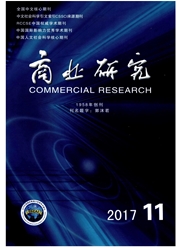

 中文摘要:
中文摘要:
在《资本论》中,马克思通过分析企业签约人的权力界定、内部分工与社会分工的异同,构建了经济学理论的第一个企业理论分析框架。马克思企业理论的系统性、深刻性和规范性使其在企业理论发展史中具有十分突出的地位。它与西方现代主流企业理论的分析框架在权力配置来源、不完全契约的原因解释和企业理论的演进逻辑方面存在分歧。两相比较,马克思企业理论更为完整和系统化。通过对马克思企业理论的进一步思考和研究,认为马克思企业理论对我国当前的企业改革,特别是国企改革具有重要的理论价值和实践意义。
 英文摘要:
英文摘要:
In the "Capital", Marx constructed the first analysis framework of firm theory by means of analyzing power definition of firm contractors and differences of interior division of work and social division of work. Marx firm theory's systematization, profundity, and normalization made it have prominent position in the history of firm theory. It is different from western firm theory in power allocation source, cause interpretation and evolution logic of firm theory. With comparative, Marx firm theory is more complete and systematic. Through the further study of Marx firm theory the author thinks that Marx firm theory has very important theoretical value and practical meaning for our firm reform, especially for stateowned enterprises.
 同期刊论文项目
同期刊论文项目
 同项目期刊论文
同项目期刊论文
 期刊信息
期刊信息
